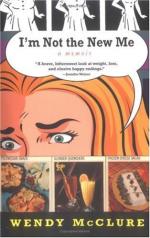“I did my best,” said the steam, gravely, “but I don’t think they were much impressed with us, somehow. Do you?”
“It’s simply disgusting,” said the bow-plates. “They might have seen what we’ve been through. There isn’t a ship on the sea that has suffered as we have—is there now?”
“Well, I wouldn’t go so far as that,” said the steam, “because I’ve worked on some of those boats, and put them through weather quite as bad as we’ve had in six days; and some of them are a little over ten thousand tons, I believe. Now, I’ve seen the ‘Majestic,’ for instance, ducked from her bows to her funnel, and I’ve helped the ‘Arizona,’ I think she was, to back off an iceberg she met with one dark night; and I had to run out of the ‘Paris’s’ engine room one day because there was thirty foot of water in it. Of course, I don’t deny—” The steam shut off suddenly as a tugboat, loaded with a political club and a brass band that had been to see a senator off to Europe, crossed the bows, going to Hoboken. There was a long silence, that reached without a break from the cut-water to the propeller blades of the “Dimbula.”
Then one big voice said slowly and thickly, as though the owner had just waked up: “It’s my conviction that I have made a fool of myself.”
The steam knew what had happened at once; for when a ship finds herself, all the talking of the separate pieces ceases and melts into one deep voice, which is the soul of the ship.
“Who are you?” he said, with a laugh.
“I am the ‘Dimbula,’ of course. I’ve never been anything else except that—and a fool.”
The tugboat, which was doing its very best to be run down, got away just in time, and its band was playing clashily and brassily a popular but impolite air:
In the days of old Rameses—are
you on?
In the days of old Rameses—are
you on?
In the days of old Rameses,
That story had paresis—
Are you on—are you on—are
you on?
“Well, I’m glad you’ve found yourself,” said the steam. “To tell the truth, I was a little tired of talking to all those ribs of stringers. Here’s quarantine. After that we’ll go to our wharf and clean up a little, and next month we’ll do it all over again.”
A CENTURY OF PAINTING.
NOTES DESCRIPTIVE AND CRITICAL.—GOYA AND HIS CAREER.—FOUR ENGLISH PAINTERS OF FAMILIAR LIFE.—GERICAULT, INGRES, AND DELACROIX.
BY WILL H. LOW.
Looking backward to the first quarter of this century, it is hardly too sweeping an assertion to say that, with a single exception, there was little that was important in the way of painting outside of France and England. There were local reputations in all the other countries, practitioners of the art who joined to a respectable proficiency in painting an adhesion to the traditions which had been handed down to them. These men, in their time and place, were notable; and in the museums of their respective countries their works remain of chronological interest to students of painting. But to the larger public which these papers address, they are of little importance, having exercised but slight influence on contemporaneous art.




